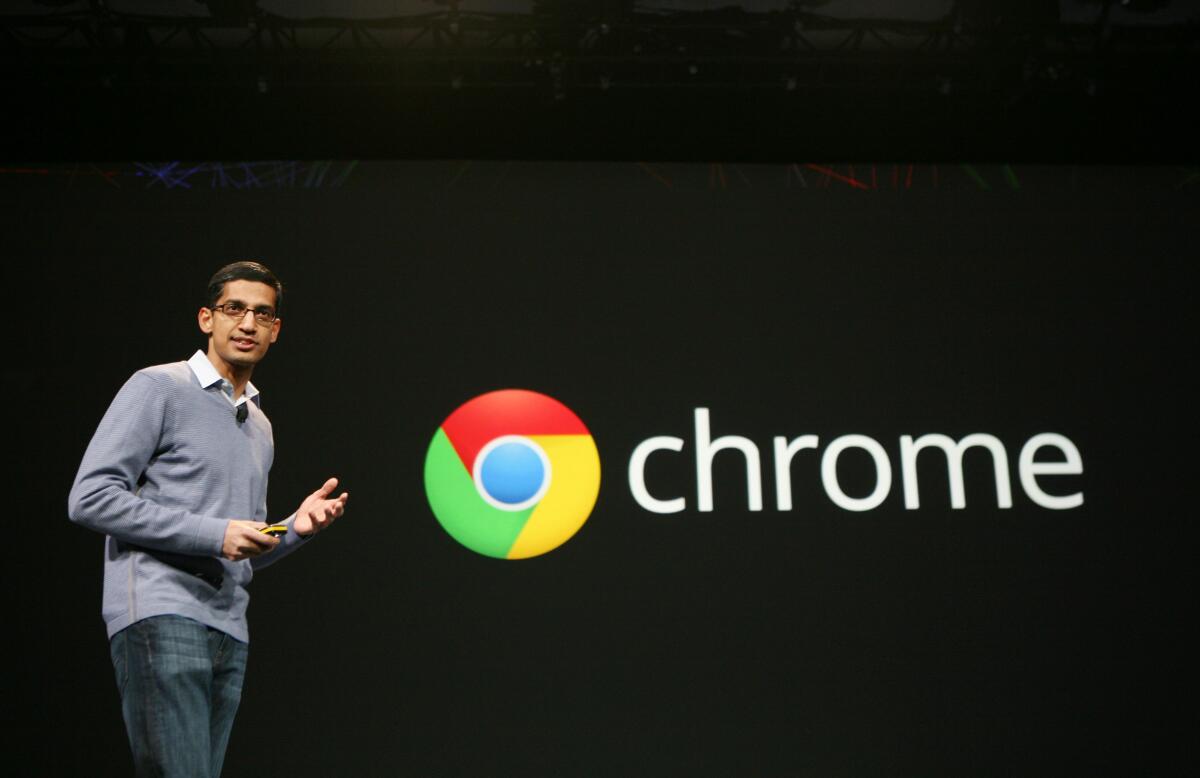Google to end third-party ad-targeting cookies in Chrome browser

- Share via
Google is planning to “render obsolete” a key tool advertisers use to track people around the web, increasing user privacy but also disrupting the marketers and publishers who rely on the search giant’s ad products.
Over the next two years the Alphabet Inc. unit intends to stop supporting third-party cookies in its Chrome browser, Alphabet Inc.’s Google said in a blog post Tuesday.
Cookies are little bits of code that stick in peoples’ browsers and follow them around the web. A core part of the online advertising landscape, they enable advertisers to target people with ads for websites they previously visited and make it easier to determine how effective certain ads were in getting internet surfers to buy something.
Apple Inc.’s Safari and Mozilla Corp.’s Firefox browsers already block third-party cookies, but Google has argued in the past that those approaches are too heavy-handed and risk cutting into vital revenue for internet publishers.
Californians have newfound power over their online information in 2020. Here’s how to exercise those new rights.
Chrome is the United States’ top web browser, with approximately half the market, according to StatCounter. Safari has about 37% market share, StatCounter says, and Firefox about 4%.
In Tuesday’s blog post, Chrome Engineering Director Justin Schuh said blocking third-party cookies could have “unintended consequences that can negatively impact both users and the web ecosystem.” The company is seeking input from advertisers, publishers and Chrome users as it works to find ways to help support advertising online while preserving privacy.
“Users are demanding greater privacy — including transparency, choice and control over how their data is used — and it’s clear the web ecosystem needs to evolve to meet these increasing demands,” Schuh said.
Google has talked about this approach before. Apple and Mozilla don’t derive much money from advertising, but the vast majority of Google’s revenue comes from digital ads. It’s in the company’s interest to keep advertisers spending more money on its websites and ad products. Google’s empire was built on its ability to provide targeted advertising.
Google is navigating a thicket of threats to its business, though, including a rising demand for greater privacy and government investigations into whether its business practices in the ad tech world are anticompetitive.
If it shuts advertisers out from its system too much, they could increase their complaints that it’s being unfair. But if it ignores privacy advocates, some Chrome users could decamp for other browsers.
Times staff writer Sam Dean contributed to this report.






